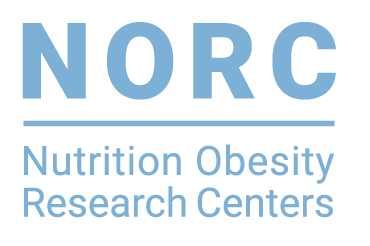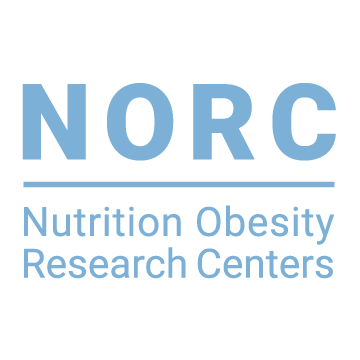University of Washington
Organization and Goals
Since its inception as the UW Clinical Nutrition Research Unit in 1985, the University of Washington (UW) Nutrition and Obesity Research Center’s (NORC) overarching goal has been to support basic, clinical, and translational research at UW related to nutrition, obesity, and related metabolic disturbances.
As the preeminent educational institution in the Northwest, the research base of the UW NORC derives from a large, highly productive, School of Medicine that includes both clinical and basic research Departments, a School of Public Health, and affiliated research institutions such as the Fred Hutchinson Cancer Research Center (Fred Hutch) and Seattle Children’s. We offer a broad range of services to this diverse research base and focus on three overarching scientific themes: Energy Balance and Obesity Pathogenesis, Health Risks of Obesity, and Nutritional Aspects of Systemic Illness. Over the years, the organization and offerings of our Cores have evolved to keep pace with the changing needs of researchers, but always with the same objectives: to support our investigators and thereby advance nutrition- and obesity-related science at this institution.
The goals of the UW NORC are to:
- To offer a balanced array of services in support of research in nutrition and obesity in a manner that evolves to meet the specific needs of our investigators.
- To advance science by offering, optimizing, and individualizing services that otherwise would be either unavailable to or not cost-effective for the local nutrition and obesity research community.
- To proactively support collaboration within, and the educational enrichment of, the local nutrition and obesity research community.
The UW NORC is organized into three biomedical research cores, an Administrative and Enrichment Core with a Biostatistics Subcore, and Enrichment and Pilot and Feasibility Programs. Collectively, these Cores and Programs support research using animal models as well as translational, clinical, and epidemiological research.
Core Facilities
The center provides supports to nutrition and obesity investigators through a variety of research cores.
Energy Balance Core
The Energy Balance Core provides state-of-the-art instrumentation for comprehensive and quantitative assessment of energy balance parameters in rodents. These include indirect calorimetry with energy expenditure normalization to body mass by multiple linear regression, body and tissue composition on living and biopsied specimens, and continuous metabolic measures including fuel utilization (respiratory quotient), ambulatory activity, wheel running activity and energy intake with meal pattern analysis. In addition, we have expanded our Core offerings to include continuous core body temperature monitoring and calculation of thermal conductance, measures of brown adipose tissue temperature and tail temperature, the performance of thermal gradient assays, and the ability to conduct thermal challenges (4°C – 34°C) using temperature- and humidity-controlled chambers. We also have 24h video monitoring equipment and software to pair behavioral analyses with metabolic studies.
Clinical and Translational Research Services Core
The Clinical and Translational Research Services (CTRS) Core integrates outstanding technical resources and facilities for human studies located at the UW and Fred Hutch. Our Study Implementation services are provided in a brand new, state-of-the-art Clinical Research Unit facility at the UW Medicine Diabetes Institute, located in the newest building on UW’s South Lake Union campus. Added to this are Imaging services, including specialized image acquisition and analysis protocols developed and validated by NORC personnel that leverage the presence of 2 dedicated research MRI scanners at UW (both operated by the Department of Radiology). NORC Affiliate Investigators have cost-effective access to the technical and human resources of a metabolic kitchen and a nationally prominent dietary assessment core for Nutrition and Physical Activity services via a collaborative arrangement with Fred Hutch.
Analytic Core
Comprehensive, state-of-the-art services for human and preclinical studies are provided by the Analytic Core in a highly cost-effective fashion both by developing specialized tests specifically for our investigators (direct services) and by serving as a conduit for investigators to access laboratory services offered elsewhere at the UW (indirect services). By handling logistics for referrals to clinical laboratories throughout the UW system, the Core seamlessly provides services that are broader in scope than would otherwise be available in a manner that is much more cost-effective than would be possible if the Analytic Core operated as an isolated unit that performs only direct testing. As an example of both our available assays and the benefits of using the NORC Core, investigators interested in bone and mineral metabolism and its role in systemic illness (a scientific theme of the UW NORC) rely on precise, reproducible and affordable measurements of concentrations of calcium, phosphate, albumin, vitamin D binding globulin (VDBG), parathyroid hormone (PTH), fibroblast growth factor-23 (FGF-23), and several different vitamin D metabolites, typically performed on EDTA plasma samples collected from cohorts months or even years in the past.
Discovery Metabolomic Subcore
The Discovery Metabolomics Sub Core of the NORC provides Affiliate Investigators with a wide range of advanced, broad-based targeted and global metabolomics assays for comprehensive and detailed information on metabolism at the cellular or organism level as it relates to nutrition, obesity and diabetes.
Biostatistics Subcore
The overarching goal of the Biostatistics Subcore is to provide biostatistics, bioinformatics and epidemiology support to the scientific activities of the NORC with an emphasis on supporting junior investigators and expanding the research base. The subcore also provides training in biostatistics, bioinformatics and epidemiology methods for all NORC investigators and works to iidentify, develop and/or implement novel biostatistics, bioinformatics and epidemiology methods as needed to support nutrition and obesity research at UW.
Contact Us
 Ellen Schur, MD, MS
Ellen Schur, MD, MS
Director
Professor of Medicine
Contact Information
ellschur@uw.edu • Phone: (206) 543-8433

Michael W. Schwartz, MD
Associate Director
Robert H. Williams Endowed Chair in Medicine
Contact Information
mschwart@uw.edu • Phone: (206) 897-5288
Administrative Offices
UW Medicine at South Lake Union
750 Republican St. Box 358062
Seattle, WA 98195-8062
uwnnorc@uw.edu • Phone: (206) 616-2950
Recent News



